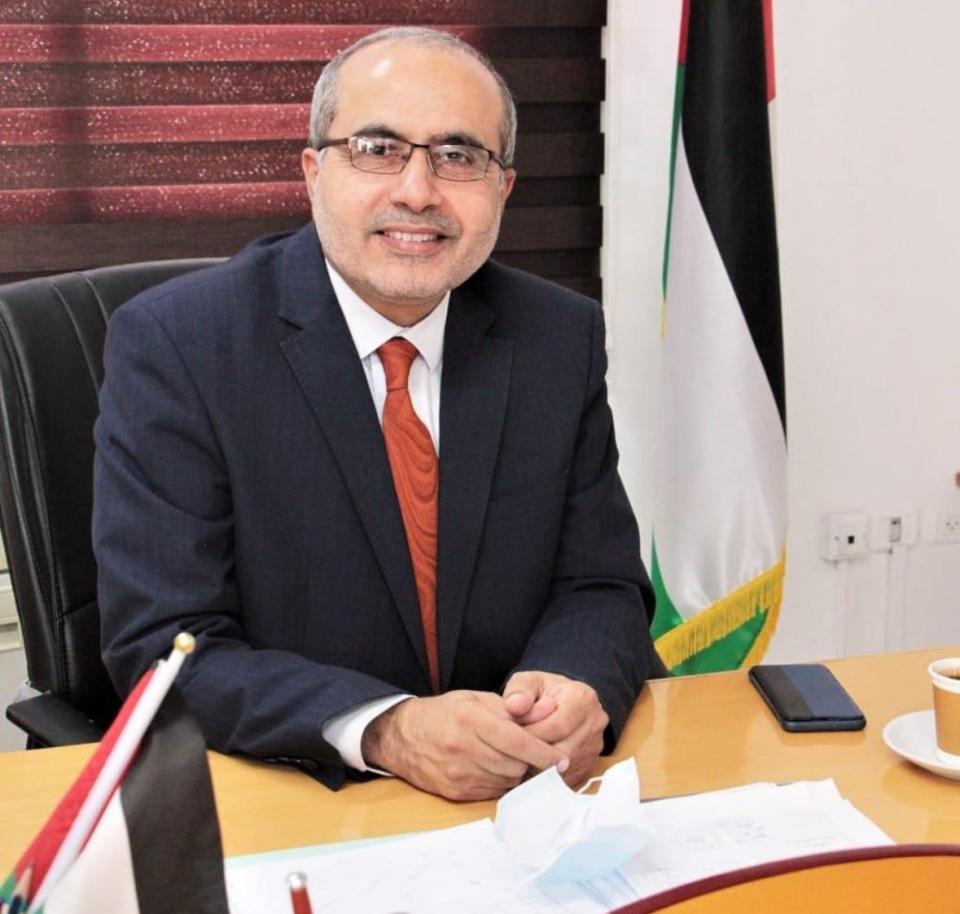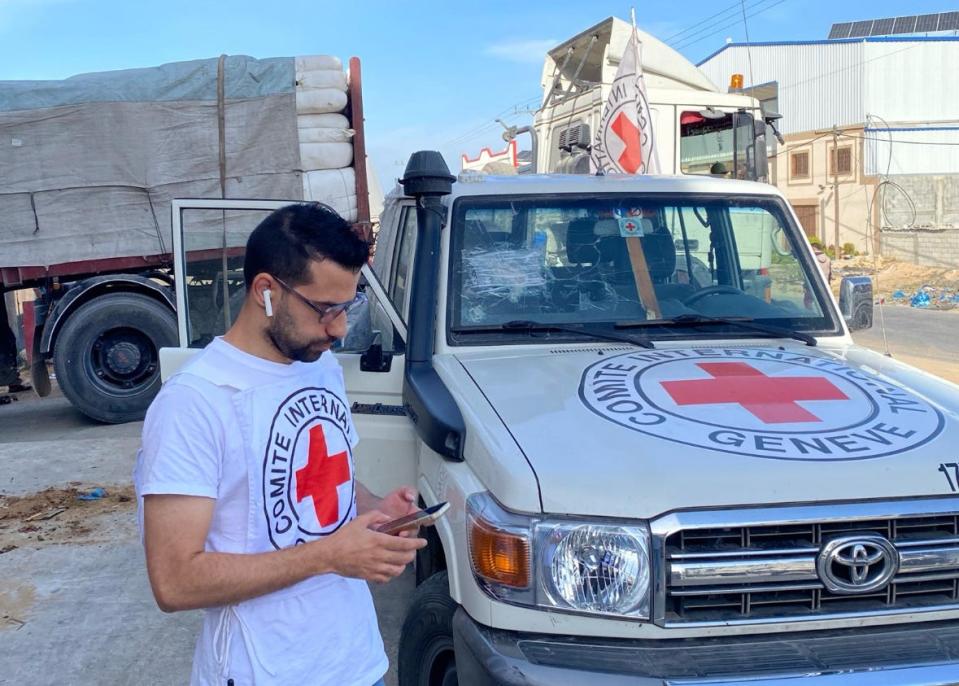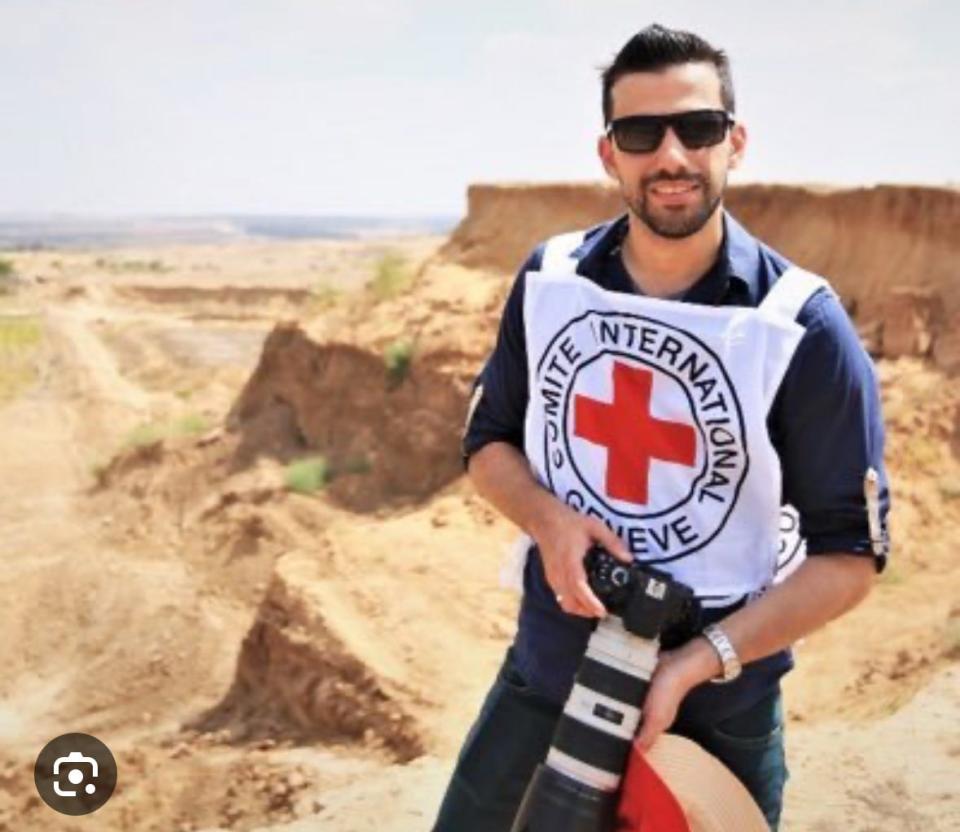It is perhaps this war’s most challenging story to report – hearing what Gaza is like from the people inside it.
International journalists aren’t getting in. The best route would be with humanitarian groups, but they’re unable to bring us.
The only option is remote.
So with the help of able Jerusalem reporters such as Isabel Debre of the Associated Press, I began to gather phone numbers.
Most had the familiar 972 Israel prefix, but a few were 970. I had to look that up on WhatsApp’s dropdown list.
“Palestine.” It turns out it has its own country code.
I began to dial numbers.
I tried Shifa Hospital’s Dr. Hussam Abu Selmia. No answer, nor to a follow-up text.
Next, Dr. Suhaila Tarazi, head of al-Ahli Hospital. The same.
And same again with a half dozen other doctors. Clearly, both they and Gaza’s phone systems are overwhelmed.
I’d gotten names of businesspeople too, but no luck. I tried on and off for days.
And then, one night, as I dialed numbers again from my list, I got an answer.
A life destroyed
It was Dr. Abdullatif Alhaj, head of Gaza’s European Hospital in Khan Yunis.
Soon, I learned why I had gotten through.
I’d reached him not in Gaza, but Istanbul, where he’d taken his two war-wounded grandchildren.
He told me they are among the only ones in his wider family who survived an airstrike on his home. He is all they now have, so he took them to safety.

Dr. Alhaj is 59. We had a bit of trouble both with language and the connection but he gave me a half hour so I could understand what he and Gaza have been through.
As head of one of Gaza’s bigger hospitals, he saw the war’s impact immediately.
“There was quickly an accumulation of injured,” Dr. Alhaj said. “Four or five times the capacity of each hospital.”
So many critical patients were backed up that doctors had to treat the worst cases first to save their lives, knowing the ones waiting would lose their limbs.
Over 50 of Dr. Alhaj’s extended family, many of them children, had been displaced from their homes by the bombardment. They started sheltering in his house, declared by the Israelis to be in a safe area.
Weeks ago, Dr. Alhaj was working overnight when he was given terrible news. His house had been hit in an Israeli strike. It was 4 a.m., so almost all were home and sleeping.
Most were killed. Dr. Alhaj’s voice was more quiet than angry as he described it, like someone left drained from trauma.
“A massacre actually,” he said. “My son and his wife and child. My daughter and her husband and their child also. My sister, my little son 17 years old; all those have been killed.”
Among the survivors were his wife and one of their daughters, and the two grandchildren with him now in Istanbul.
“One of them, 8 years old, is suffering from the fracture of the hip,” Dr. Alhaj said. That’s his grandson.
His granddaughter survived despite being impossibly young.
“Her age was two weeks when she got the trauma,” said Dr. Alhaj. “You can imagine how little she is. She had a severe head injury and brain hemorrhage.”
For long seconds, there was silence. I wasn’t sure whether it was the connection or if Dr. Alhaj was composing himself.
“It’s why we are here now,” he finally said, “for further management.”
Dr. Alhaj grew up in Gaza’s Nuseirat refugee camp, later doing medical training in both Jerusalem and Japan.
For years, he’s been head of Gaza’s European Hospital, but feels at the moment, his job as a grandfather is most important.
I asked if he liked Gaza before the war.
“Yes, of course,” said Dr. Alhaj. “It’s my home. All my family is there. My extended family. It’s my people. My homeland. And I had a mission we had to do.”
Does he plan to go back?
“I don’t know. Gaza is not Gaza now. We don’t have a house; it was destroyed. The majority of my family was killed. I don’t know.”
His focus now is his two orphaned grandchildren.
“They are without their father, without their mother,” said Dr. Alhaj. “Now I choose to be their father and their mother.”
It was evening, and I felt I shouldn’t hold him longer.
“You sound like a good man,” I said in bidding him goodbye.
Dr. Alhaj responded with one word.
“Inshalla.”
Why they stay in Gaza
Over the next days, I kept making calls, and at last, managed to connect live to someone inside Gaza. He was a likely candidate to be reached since his job is to be available. His name is Hisham Mhanna, a young communications guy for the International Committee of the Red Cross.
But I was more interested in him personally.
Hisham is 34 and grew up in Gaza City, son of a contractor.
I asked his mom’s job.
“A terrific mother.”


Hisham has two children, one of whom he hasn’t met yet. His wife is half-Palestinian and half-Filipino, so was eligible to be evacuated in November, when she was close to giving birth. Their new son Jude is just two months old, and Hisham has only seen him in photos and video calls. His other son Ryan is two and a half.
Why did Hisham choose to stay?
“I still have the rest of my family here,” he said. “My parents, my brothers my sisters, my nephews and nieces.”
And he believes in his work.
As a Red Cross spokesperson, it’s important for Hisham to be neutral. So he simply shares what he has seen.
He used to live in one of Gaza’s nicer neighborhoods, in southwest Tel al-Hawa near the Mediterranean. But most of that area has been destroyed.
“The café where we hang out,” said Hisham, “and our favorite restaurant. Where I studied in college.” All gone now.
Like most people in Gaza, Hisham has lost family, friends and colleagues.
One of those colleagues, a 40-ish Red Cross radio operator named Abdo, hasn’t been buried yet. The building that collapsed on him after an airstrike is unstable, and with so many similar collapses, there isn’t enough equipment to extract the bodies.
I asked if he and Abdo were close.
“He was the nicest guy you could have your morning coffee with,” said Hisham.


Abdo’s wife and 8-year-old son survived, and are now living, like so many, as displaced people in Gaza’s south. Before the war, said Hisham, that area was already crowded with 300,000 people – now there are 1.5 million.
Hisham is based near there too, in Rafah, where he has worked for five years. When he can, he goes with Red Cross teams to deliver medicine to hospitals and items like blankets to the displaced.
I felt I had to ask him about an ICRC controversy. Hostage families in Israel are furious that the Red Cross hasn’t visited the kidnapped – one of their official missions.
It’s their goal, Hisham said, but as he puts it, “all parties have to guarantee access and security,” and that hasn’t happened.
“We cannot force ourselves,” he told me.
Obviously, that was shorthand for Hamas refuses.
I asked how people are getting by in the crowded south.
“They can’t put food on the table,” said Hisham. “There’s not even a table. They live in tents and the streets.”
Some families have had to evacuate a half dozen times, and may face it again. He also sees unsettling signs of mental health issues.
The lataest: 3 US soldiers killed in Jordan drone strike identified: ‘It takes your heart and your soul’
“I have witnessed women crying by the bodies of their husbands, or parents, or children,” Hisham said, “and the next week they would be sitting there silently. It expresses trauma.”
Does he plan to remain in Gaza once the war ends?
“I love my home here,” Hisham told me, “but there’s no home left.”
So much of Gaza, he said, is quite literally rubble. Would his kids and family have schools, electricity and water infrastructure? Not for a long time.
I asked who he blames.
“War is ugly for everyone on both sides of the border line,” he said. “For all families.”
I thanked him for giving a powerful glimpse of Gaza.
“I’ve seen a lot, my friend,” he said.
I had one more question – has this changed him?
“Hello?” Hisham said. “Mark?”
I asked again, but we could no longer hear each other.
And then, in a telling moment, the connection went dead, and both he, and Gaza, were out of reach.
Mark Patinkin is traveling to Israel personally and is not sponsored by or affiliated with any organization. He will report firsthand from the region as he has done for the last four decades through his award-winning journalism. He can be reached at [email protected].
This article originally appeared on The Providence Journal: Inside Gaza, stories of death, loss and questions about the future


